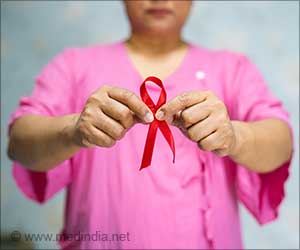Genetic Profile To Predict Ovarian Cancer Prognosis
A new study appearing in the November 1, 2005 issue of The Journal of Clinical Oncology (JCO), says that a new gene profile may help in predicting how patients with advanced ovarian cancer would respond to aggressive chemotherapy.
In many patients with ovarian cancer, at whatever stage, first grade chemotherapy usually shows an effect in combating the cancer. But, "due to the lingering presence of chemotherapy-resistant cancer cells, most patients will unfortunately experience a relapse. The goal of our current research is to help determine which patients will relapse and which will not, and to better understand the reasons for this," says lead author Stephen A. Cannistra, MD, director of gynecologic oncology at Beth Israel Deaconess Medical Center (BIDMC) and professor of medicine at Harvard Medical School.Cannistra and his team have been working on the genetic profile of the ovarian cancer that would help doctors predict the course of the disease as well as its prognosis in a better manner.
Last year, his team identified a gene expression profile known as the Ovarian Cancer Prognostic Profile (OCPP). This profile is helpful in predicting the survival rates of patients with advanced ovarian cancer. In the current study, researchers conducted microarray testing on 60 ovarian cancer patients treated at BIDMC and Memorial Sloan-Kettering Cancer Center to study if the genes present in the tumor before surgery find an expression the second time as well when a second-look surgery is performed. This technique is a very sensitive towards detecting any remaining cancer cells. It was found that the presence of 93 genes called, as the Chemotherapy Response Profile (CRP) was able to predict which patients would experience a complete absence of tumor the second time around. "We found that together these two gene profiles [CRP and OCPP] are a more powerful predictor of a patient's prognosis than either profile separately," said Cannistra. "This represents the first time that two profiles have been combined to yield such a powerful result in this disease."
Contact:
Bonnie Prescott
bprescot@bidmc.harvard.edu
Beth Israel Deaconess Medical Center
bidmc.harvard.edu











